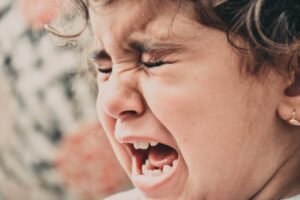It’s Place2Be’s Children’s Mental Health Week 2025 in the UK (3rd-9th February), and this year’s theme is Know Yourself, Grow Yourself.
 The leading children’s mental health charity has partnered with Here4You, supported by the Walt Disney Company and the characters of Inside Out 2, for this year’s awareness campaign.
The leading children’s mental health charity has partnered with Here4You, supported by the Walt Disney Company and the characters of Inside Out 2, for this year’s awareness campaign.
Here4You supports young people’s mental health by signposting youth, parents and teachers to immediate help and resources. They are supported by the Walt Disney Company and their resources utilise the animated characters of Disney Pixar’s Inside Out and Inside Out 2 to encourage children and young people to find out how getting to know themselves can help them build resilience, grow and develop.
Here4You have joined forces with Place2Be to explore the campaign theme and the importance of self-awareness and expressing emotions for Children’s Mental Health Week 2025.
Self-awareness is key for Children’s Mental Health Week 2025
 Developing self-awareness is all about understanding ourselves: our likes and dislikes, fears and worries, motivations and strengths and our values, beliefs and opinions. These guide and inform our emotional responses and reactions. In turn, children and young people also need to learn to understand and regulate these responses.
Developing self-awareness is all about understanding ourselves: our likes and dislikes, fears and worries, motivations and strengths and our values, beliefs and opinions. These guide and inform our emotional responses and reactions. In turn, children and young people also need to learn to understand and regulate these responses.
BAFTA are also supporting Children’s Mental Health Week 2025 with a new video mini-series to explore the impact of self-awareness on mental health and wellbeing. BAFTA Young Presenters Samaira Iqbal (winner of BAFTA Young Presenter 2021) and Tristan Thompson (2024 winner) interviewed some well-known figures from the worlds of television, film and radio to reflect on the theme of Know Yourself, Grow Yourself.
Focusing on building creative resilience, they explore topics such as calming nerves, coping with difficult emotions and living with insecurities. The videos are available to view on Place2Be’s Children’s Mental Health Week website and BAFTA’s YouTube channel.
Place2Be has a range of helpful free resources and activities for schools and families who would like to take part in Children’s Mental Health Week 2025. These include tips for supporting children and young people to express their emotions. They also provide a fundraising pack, which includes a fundraising guide and ideas to help groups across the UK raise vital funds to support Place2Be’s incredible work.
Children’s Mental Health Week is an important campaign, which sheds light on children’s mental health and wellbeing, highlighting key facts such as:
- 1 in 5 children and young people have a probable mental health condition, and many continue to experience these problems into adulthood
- 50% of children and young people who experience lifelong mental health problems first experience their symptoms by the age of 14
- 1 in 10 boys aged 5-19 with a mental health condition are suspended in some form from school
Learn about emotional regulation for Children’s Mental Health Week 2024
 For Children’s Mental Health Week 2025, Place2Be Ambassador Kate Silverton has spoken about the importance of emotional regulation for children and young people.
For Children’s Mental Health Week 2025, Place2Be Ambassador Kate Silverton has spoken about the importance of emotional regulation for children and young people.
An accomplished broadcaster and mum of two young children, Kate Silverton is also a Sunday Times bestselling parenting author and a qualified child therapist, having undertaken clinical training with Place2Be.
In an essay published by The Royal Foundation’s Centre for Early Childhood, Kate explains how caregivers can support children to “actively learn” to regulate their emotions.
In the essay, entitled Managing our emotions – A gift for life, she emphasises the importance of learning this vital skill:
“When children can regulate their emotions, they can focus in school, control impulses, take turns, and engage socially. Emotional literacy helps them manage frustration, build healthy relationships, make wise decisions, and avoid self-destructive behaviours. However, emotional regulation is not something we’re born with – it is something children must actively learn.”
Kate goes on to explain the pivotal role of primary caregivers and other adults:
“Self-regulation takes time and develops best in warm, responsive relationships where adults model emotional control. This is why parents and caregivers must practice emotional regulation themselves. As adults, we can create a safe and supportive space, attuning to the child’s energy, helping them to express, regulate and ultimately return to calm. We can help children become more aware of their inner experience in these moments, ultimately observing their feelings rather than acting them out.
“[…] By normalising emotions and explaining their provenance, we can help children befriend them. With practice, they’ll learn to express their feelings verbally rather than using fists or feet. Teaching emotional regulation takes time and patience, but it’s one of the most valuable tools we can offer our children. In fostering emotional literacy, we give them a gift for life.”
Building resilience among children and young people
Kate has also produced an exclusive video for Place2Be’s Children’s Mental Health Week in which she provides the following guidance for parents and caregivers:
“When we respond kindly, with empathy – when we provide comfort and reassurance that calm and soothes our children from within – […] Our loving and dependable presence is starting to programme resilience in our children.”
 Many experts argue that resilience is key for combatting a youth mental health crisis.
Many experts argue that resilience is key for combatting a youth mental health crisis.
Some research studies have suggested that young people with greater resilience were more likely to develop their own coping strategies when dealing with stress, such as seeking support and advice from others, and were less likely to dwell on negative emotions or turn to negative behaviours such as drug use, drinking alcohol or smoking.
Place2Be’s Head of Parenting, Cecilia Corbetta, agrees with Silverton that children and young people need “the space and support to understand their emotions and develop positive ways to cope with challenges.”
She adds:
“At Place2Be, we’re here to support families and schools in creating environments where children can flourish, so that together, we can ensure every young person has the tools they need to grow and face life’s challenges with confidence.”
Self-awareness and resilience are also vital for parents
 In a separate article for Children’s Mental Health Week 2025, Cecilia explains why self-awareness is also crucial for parents.
In a separate article for Children’s Mental Health Week 2025, Cecilia explains why self-awareness is also crucial for parents.
A BACP accredited counsellor, clinical supervisor and parenting coach with over 20 years’ experience of counselling, therapeutic services and supervision within schools and private practice, Cecilia believes that self-awareness can help parents to grow just as much as it can children.
She says:
“Parenting is an ongoing journey that requires resilience, adaptability, and , most importantly, self-awareness.
“Self-awareness begins with understanding ourselves – our thoughts, emotions, and reactions. When we’re in tune with our own feelings, we are better equipped to manage strong emotions in challenging parenting situations. Instead of reacting impulsively in moments of frustration or stress […] we can pause, reflect, and respond thoughtfully.”
Cecilia outlines 5 key ways in which knowing ourselves better can help adults grow as parents:
- Strengthens parent-child relationships – Becoming more aware of ourselves helps us to better tune into our children’s needs. Bing more present and empathetic helps us to better connect with our children and, finally, being more aware of how our tone of voice or body language may be experienced by our child can help us communicate in ways that make them feel heard and understood
- Reduces unnecessary conflict – being more self-aware can help parents to respond to situations in a calmer and more intentional way
- Breaks negative generational cycles – understanding the influence of our own upbringing and childhood experiences can help us to choose healthier approaches to discipline, communication and emotional expression.
- Encourages emotional intelligence in children – Parents are better able to model to their children how to manage difficult emotions, practice self-reflection and communicate openly
- Promotes healthy boundaries and self-care – recognising our own needs can help us to prioritise self-care and maintain healthy boundaries. This helps us to build our own resilience and be more effective and nurturing parents, while also setting a positive example for our children.
Cecilia concludes:
“Parenting is as much about us growing individually as it is about guiding and nurturing our children. Being self-aware doesn’t mean being perfect – it means being conscious of one’s emotions, behaviours and responses and using personal insight to inform actions.
“Ultimately, self-awareness not only benefits parents but also lays the foundation for healthier, happier children.”
Place2Be offers top tips on building self-awareness for families as well as a range of articles about Parenting Smart.
Training and guidance for Children’s Mental Health Week 2025
 First Response Training (FRT) is a leading national training provider delivering courses in subjects such as health and safety, first aid, fire safety, manual handling, food safety, mental health, health and social care, safeguarding and more.
First Response Training (FRT) is a leading national training provider delivering courses in subjects such as health and safety, first aid, fire safety, manual handling, food safety, mental health, health and social care, safeguarding and more.
They work with a large number of early years and childcare providers, as well as schools, colleges, and children’s services.
Their courses include Understanding Mental Health, Youth Mental Health First Aid, Anxiety Awareness, Self-Harm Awareness and Suicide Awareness.
A trainer from FRT says:
“Children’s Mental Health Week is a vital annual awareness campaign. It is crucial that we continue to have open conversations about mental health and wellbeing and that we focus on important related issues such as self-awareness, emotional regulation and building resilience.
“We must support children and young people and help them to talk about and process their thoughts, feelings and worries and to recognise their responses and reactions to these. We need to support their mental health and wellbeing and regularly check in with them.
“Anyone who works with children and young people needs a good understanding of mental health and to be able to spot the signs that someone may be struggling. They should also feel confident to offer appropriate early help and support.
“As we mark Children’s Mental Health Week 2025, why not contact us to arrange focused training to empower you and your team to provide the right support for the children and young people you work with.”
You can download FRT’s free Guide To Supporting Young Minds on their website.
For more information on the training that FRT can provide, please call them today on freephone 0800 310 2300 or send an e-mail to info@firstresponsetraining.com.
